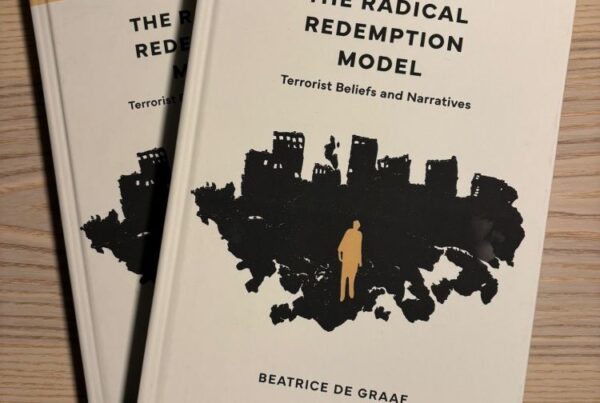We are delighted to announce that Beatrice de Graaf, distinguished faculty professor and holder of the chair of the History of International Relations at Utrecht University, has just signed a contract for her book Radical Redemption: What Terrorists Believe. It will be the first volume in the OUP Extreme Belief and Behavior Series, edited by Rik Peels. The book will be published late 2024 or early 2025.
In this boo k, De Graaf looks beyond acts of terrorism and their consequences and explores how convicted terrorists narrate their extreme beliefs. To discover what terrorists believe and how those beliefs bring them to commit their deeds, she recorded the life stories of almost thirty convicted terrorists, that were in prison over the past ten years. Most were Dutch detainees convicted for jihadist terrorism, but she also includes accounts by non-Western terrorists (Indonesian, Syrian and Pakistani jihadists and Boko Haram members in Cameroon) and Western right-wing extremists – all in jail over the past decade. First of all, she unpacks how their stories are all unique, but how there is one common denominator: a desire for significance, sense and meaning in lives that are often lacking in prospects and fulfilment. Yet, rather than focusing on orthodoxy (right belief), it is their lived orthodox praxis (right practic
k, De Graaf looks beyond acts of terrorism and their consequences and explores how convicted terrorists narrate their extreme beliefs. To discover what terrorists believe and how those beliefs bring them to commit their deeds, she recorded the life stories of almost thirty convicted terrorists, that were in prison over the past ten years. Most were Dutch detainees convicted for jihadist terrorism, but she also includes accounts by non-Western terrorists (Indonesian, Syrian and Pakistani jihadists and Boko Haram members in Cameroon) and Western right-wing extremists – all in jail over the past decade. First of all, she unpacks how their stories are all unique, but how there is one common denominator: a desire for significance, sense and meaning in lives that are often lacking in prospects and fulfilment. Yet, rather than focusing on orthodoxy (right belief), it is their lived orthodox praxis (right practic e) that they mostly speak about—which, it is argued, does not mean that their beliefs are irrelevant. The study then continues and combines a historical perspective with qualitative radicalization studies and concepts from the sociology of religion and social psychology (‘quest for significance’, ‘the redemptive self’), to identify and analyze how convicted terrorists developed 1) narratives of radical personal redemption, where 2) ideology and praxis (the whole of actions and words) were combined, and were 3) validated by a perceived group or support base – or, instead, became contaminated in the course of time.
e) that they mostly speak about—which, it is argued, does not mean that their beliefs are irrelevant. The study then continues and combines a historical perspective with qualitative radicalization studies and concepts from the sociology of religion and social psychology (‘quest for significance’, ‘the redemptive self’), to identify and analyze how convicted terrorists developed 1) narratives of radical personal redemption, where 2) ideology and praxis (the whole of actions and words) were combined, and were 3) validated by a perceived group or support base – or, instead, became contaminated in the course of time.
The book thus embodies core ideas explored in the Extreme Beliefs project: that general explanations of terrorism in terms ofpsychopathology will not do, that terrorists ought to be taken seriously as persons who sometimes know things about their motivations, that religion and ideology matter to explaining terrorism but that they need to be rightly conceptualized and understood in their contexts, and that we should pursue the integration of different methods from various academic disciplines to properly understand and explain terrorism. Various issues that receive ample attention in the book, such as the explanatory relevance of narratives, fanaticism and sacred values, and pitfalls and opportunities in listening to terrorists, will be further elaborated upon in later volumes in the series.

